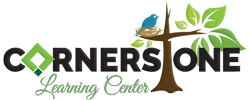Quality early childhood education plays a critical role in a child’s growth and development. It influences the kind of person the child will become. Both build the foundations for competence and the skills necessary for success in the future.
It fosters holistic growth and enables children to think critically, communicate, create and collaborate. As parents, we want to provide the best kind of education there is. And while both preschool and pre-kindergarten support the needs of young children, they still differ in certain ways.
How is preschool different from pre-kindergarten?
Read on and learn more about the similarities and differences between preschool and pre-kindergarten.
Similarities
Both preschool and pre-kindergarten provide children with a plethora of opportunities to experience fun and meaningful learning.
Curriculums that stimulate children’s minds
They have programs and curriculum that allow children to enjoy playful learning through games and age-appropriate activities. Young kids learn best through exploration, discovery and hands-on experiences. And these are exactly the things they get from preschool and pre-kindergarten.
Even if they spend their day in the classroom, they are given rich opportunities to experience a wide variety of fun activities that teach them the foundation of literacy, math, science, art, music and a lot more!
Warm and safe environment
Nurturing a child’s social and emotional growth is important. This is one of the goals of both preschool and pre-kindergarten education – to create a warm and safe environment that will foster kids’ emotional and social growth.
In a preschool and a pre-kindergarten setting, children have plenty of opportunities to get along with other children. They learn social skills not only through mentoring and direct teaching. They also learn through their daily interactions with their peers. Moreover, they have more opportunities to play with other children and even learn how to deal with minor conflicts.
Differences
One of the main differences between preschool and pre-kindergarten is the way they address school readiness in their curriculums.
School readiness in their curriculums
While both have games and fun learning activities woven throughout the day, pre K is more focused on advanced learning. Its focus is more on science, math and other subjects that require critical thinking. Preschool, on the other hand, fosters children’s cognitive development and problem solving skills through shapes, colors and numbers. They use an approach that’s a little more advanced than that of a daycare.
Age bracket
Another distinct difference between preschool and pre K education is the age bracket they cater to. The age range preschools cover is between 2 and 4 years old while children in a pre K setting are usually 4 to 5 years old. This is one of the things parents should take note of because the programs are designed not only based on the age of the children but also in their developmental abilities.
Preschool children are given the chance to engage in school readiness activities. Pre-kindergarten children are given more advanced and more structured lessons.
Duration
Because pre-kindergarten education is more focused on a more advanced learning, their classes usually run through a full day. Preschool classes are generally shorter and more flexible. Most of the time they only last for half a day.
Location
When it comes to the setup and location, preschools are mostly located in isolation. It does not need to have an affiliation with a bigger school setting. Pre K schools, on the other hand, are mostly attached to a wider or a more progressive school set up.
Programs offered
Whether it is preschool or pre-kindergarten, a high quality early childhood education is important. It helps a child achieve success in their future academic endeavors. The programs offered in preschool and Pre K are designed to develop children’s vocabulary and language skills. These programs help young kids get ready for formal schooling. This way, they can continue to develop intellectually, emotionally, socially and physically as soon as they start kindergarten.
Early childhood education builds a strong foundation of learning that can help a child succeed in the following academic years. Now that you have learned the similarities as well as the differences between the two, it should be easier to pick the best program that will suit your child’s needs.
And when you look for the best preschool in Memphis that offers the best quality early childhood education, please feel free to visit Cornerstone Learning Center.
